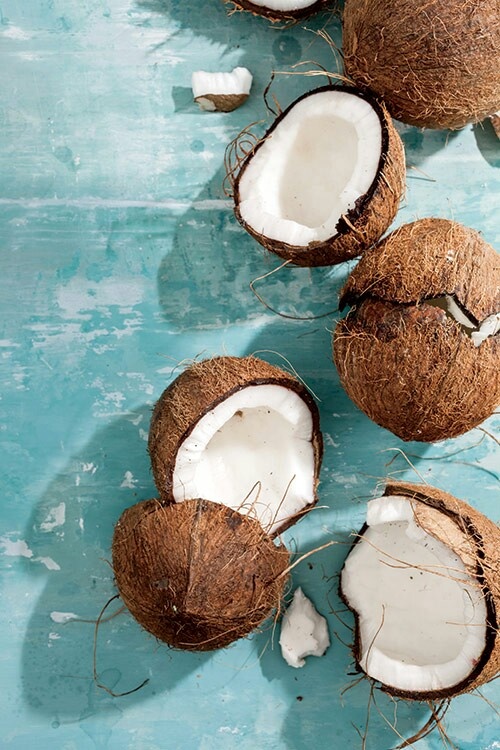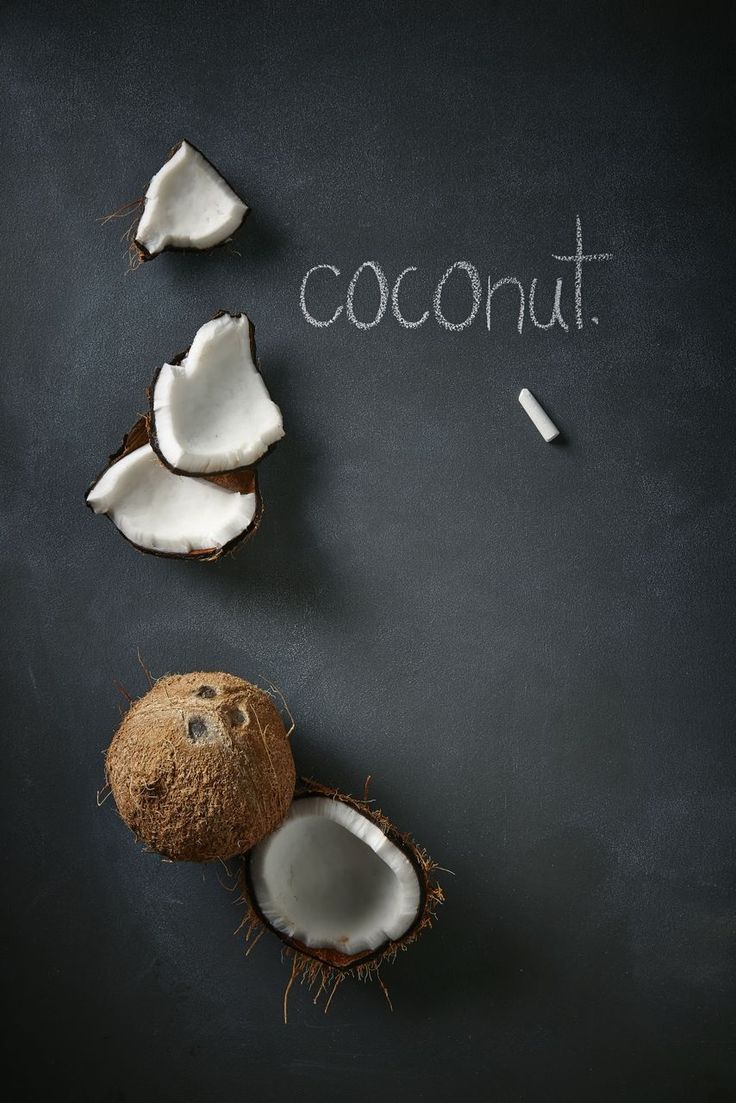
I freely admitted in my updated article about my fiasco of my confusing ordeal with a stevia product I was using, that I can get thoroughly confused about the contents of many sweetener I am using.
But maybe, just maybe, the “Nutrition Gods” have toyed with me enough and led me to the right product for my purposes. I only use sweetener in my smoothies, and in my Green Tea, but I drink A LOT of smoothies and green tea………I mean, A LOT!!!

Walking down the sweetener aisle at Whole Foods, happened to look up and notice Coconut Palm Sugar. Organic, sustainable, unrefined, I grabbed a bag and figured I’d research it that same night and either try, or return………..but it maybe this is the end of the road of my sweetener search.
……just maybe

Coconut Palm Tree vs. Palm Tree
(all health nuts know to boycott Palm Tree Products)
I haven’t got all the way into this but I have a “hurry up” research technique and am very comfortable with Coconut Palm Trees being a very sustainable food source, as opposed to Palm Tree Farming, which is up there with the destruction of the Amazon Rain Forest as one of the main disrupters of the Earth’s fragile ecosystem.
The short of Palm Tree farming in the East Indies is that they are destroying huge swaths of land, endangering many species of animals and plants to plant and grow palm trees for palm oil and other products.

Coconut Palm is Sustainable!!!
The “Quick Quote” if you don’t have time to research, or if that is not your thing, comes from Sarah Pope from The Healthy Home Economist
“The Food and Agriculture Organization (FAO) of the World Bank reports that coconut palm sweeteners are the single most sustainable sweetener in the world! The reason is because coconut palms are a tree crop which benefits the environment ecologically as they restore damaged soil requiring very little water in the process. In addition, coconut palms produce more sugar per acre than sugar cane (50-75% more) while at the same time using less than 20% of the soil nutrients and water for that high level of production”.
Read the VERY GOOD article on Coconut Palm Sustainability on one of my favorite bloggers, someone I go to for my on ongoing nutrition education, The Food Renegade.
To read the opposing point of view on Coconut Palm sustainability, go here

Doubt is their Greatest Weapon…..
Note: There is a “Web War” going on over this “sustainability” subject, it seems, only to deter people from trying Coconut Palm Sugar, and basic web searches may thoroughly confuse you, as big business (with hundreds of billions at stake in keeping consumers continuing to use their refined products) pays people to get on the web write contradictory articles so consumers will “give up” and not try holistic healthy alternatives.
…I don’t know if I’m honored, or angry, or what, but they are actually starting to come after me and my blog………sigh.
I can tell the difference in these articles, but just be warned….sad but true. They don’t want us to break free. As one health author said in his book….”Doubt is their Greatest Weapon”

Coconut Palm Sugar, the quick, Nutrition Science bla-bla-bla ……..
Coconut sugar is also called Coconut Palm Sugar. That is why it is often confused with Palm Sugar, which is similar, but made from a different type of palm tree. Coconut Sugar is a natural sugar made from sap, which is the sugary circulating fluid of the coconut plant (coconut palm trees are one of several thousand species of palm)
Coconut sugar is made in a natural 2-step process:
1) A cut is made on the flower of the coconut palm and the liquid sap is collected into containers
2) The sap is placed under heat until most of the water has evaporated.
Coconut palm sugar is low Glycemic (though this seems to be “arguable”, as pertains to how all that “Glycemic Stuff” is measured, as in, the Glycemic indexes measures [I think] Glucose and not Fructose, I haven’t dived too deep into it, because I don’t consume a lot of any sugar), good Amino Acid profile, rich in potassium, good calcium source, good levels of EXTREMELY important Magnesium, and also rich in “prostate friendly” Zinc. Because coconut sugar is unrefined, it retains all of its natural minerals and vitamins.

I “think” this is a historic product……
…… which is always a good sign, but I don’t want to write that without confirming it. Historically used products are my preferred choice, since centuries of time has a way of weeding products of no nutritional or health value from the natural food supply.
I can’t yet confirm its historic use, but I thought I read it somewhere in my quick research. However I’m always updating my articles as I learn more about what I put in my own body. Check back for that info……

If there’s bad taste, then this whole thing is a waste……
Research? So far, so good, but if it tastes like garbage……….can’t use it. I’m not a big fan of forcing bad tasting healthy products into my diet, I will at some point stop using them.
The initial taste test was “anticlimactically great”, no issues whatsoever. A tablespoon or so was PERFECT to sweeten up my broccoli laced smoothies, and my Green Tea was once again AWESOME, and the Coconut Sugar dissolved nicely.
I knew I was good when before my first use, I stuck my finger in the package, took a taste and said mmmmmm, very good. Like a more “woodsy”, flavorful version of brown sugar, perhaps slightly less sweet.

Maybe, just maybe……
…the journey ends here? One other reason I hope that very much is because, as I mention all over my blog, the coconut is probably second to papaya as the most underrated, under-utilized, under-advertised, under-researched, under-the-radar, super-duper food just laying there in the fruit and vegetable section that everyone walks past.
The properties of coconuts I have definitely confirmed from my perfect cholesterol scores in spite of heavy coconut oil frying, and Coconut Vinegar kicks butt compared to Apple Cider Vinegar, Coconut Flour for GF flourless Banana Bread, and Coconut Water is ‘da Bomb!!! So, I think if I gotta take in a sweetener, why not daily take in the energy and nutrient profile of one of the most potent superfoods (and super-medicines) on earth.
Plus, the Rooibos Tea and Coconut Sugar I’m drinking while writing this article is “Just Damn Good”!!! Maybe, just maybe, the journey in search of an acceptable healthy sweetener is over 🙂

IMPORTANT NOTE!!! You have to keep in mind that although Coconut Palm Sugar is a better alternative to refined sugar, IT IS STILL SUGAR!!! Meaning it is not fat free, and you can still consume too much of it and start to tack on a few pounds. The difference is, it is unprocessed, and all of its minerals are in tact, and thus the body can process it much easier, because the body tends [in general] to less frequently store natural products and foods as bodyfat, the opposite of refined and processed foods, in that because they are not natural foods as nature created them, the digestive system often gets confused, and doesn’t know how to process out the excess, and thus the body stores the excess that cannot be eliminated through the digestive tract, as body fat. (hope that makes sense)
~stay healthy~
click here or photo below for all my articles in “Eat Smart”


























































































2 Responses
Coconut sugar is a good alternative and definitely healthier sweetener.
Organic coconut sugar is low glycemic(35), which is a measurement of the impact on blood sugar. Low GI means organic coconut sugar absorbs slowly into the blood stream. It is providing sustained energy without a sugar high and subsequent sugar crash as with other sweeteners. It is not only a nutritional food but it contains several vitamin and minerals than white table sugar. It contains amino acids which are the building blocks for proteins.